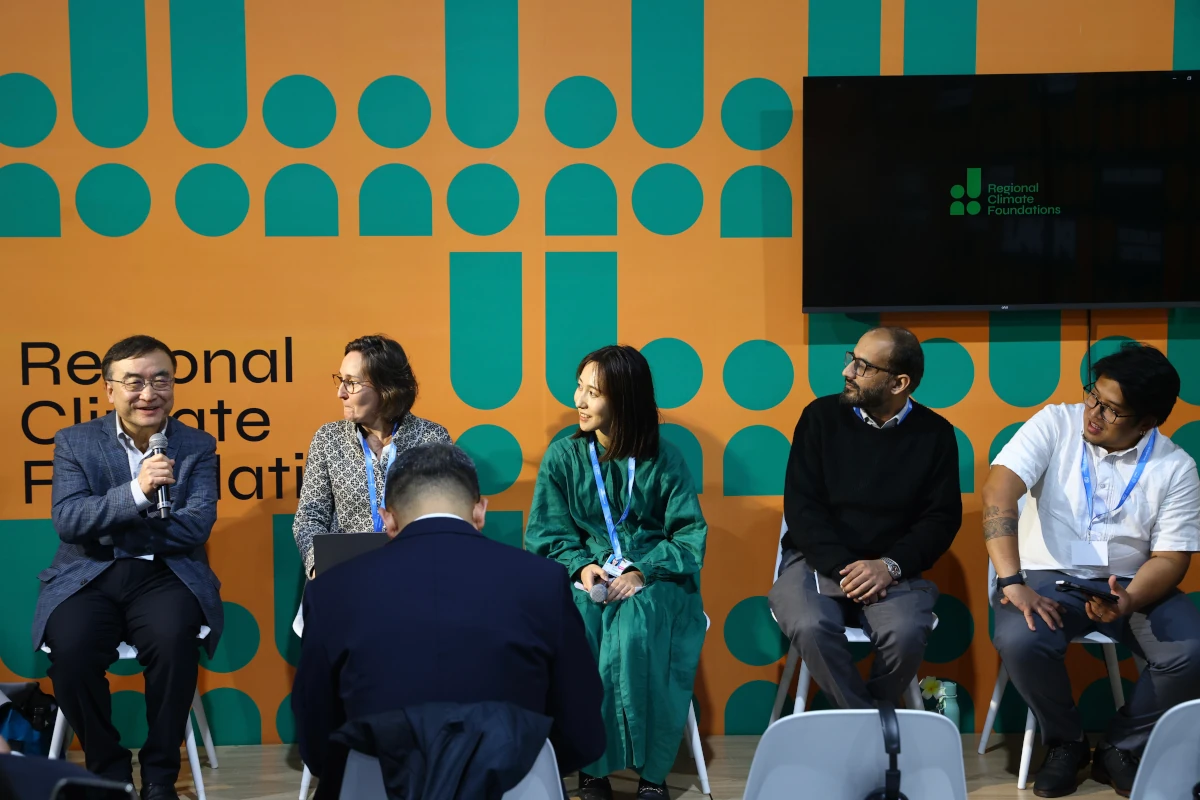On a continent that is home to 60% of the world’s population and concentrates some of the largest emitters of greenhouse gases, three regional climate foundations stand out for accelerating the Asian transition to sustainable energy.
The China-based Energy Foundation, India’s Shakti Sustainable Energy Foundation, and ViriyaENB in Indonesia share a common agenda focused on promoting clean power and greater energy efficiency. Their work anticipated global goals like those agreed upon in the UAE Consensus at COP28, which aims to triple global renewable energy capacity and double efficiency by 2030.
The collaborative work of these organizations will be highlighted at the upcoming COP30 in November in Belém, Brazil. They will present concrete examples of their successful climate actions at the RCF pavilion. Active participation in the climate conference is already a key aspect of their efforts. At COP29, for example, Energy Foundation co-hosted an event to discuss accelerating renewable energy in Asia, and Shakti supported an event on learnings from sub-national climate action. ViriyaENB was debuting at the shared space in the last COP but achieved important results, formalizing an international partnership.
Pioneering work in China
With over 25 years of history, Energy Foundation anticipated the Chinese’s climate concerns and actions. China is currently the world’s largest emitter of greenhouse gases, responsible for nearly one-third of the global total. But the foundation played a pivotal role in historic achievements such as China’s carbon neutrality commitment, a dramatic improvement in urban air quality, and the expansion of more livable cities.
These actions helped pave the way for President Xi Jinping’s September 2020 announcement that the country would aim to peak its CO₂ emissions before 2030 and achieve carbon neutrality by 2060.
For the organisation, the upcoming “COP30 in Brazil is a crucial moment” to build trust and accelerate the implementation of global climate action. The organization emphasizes that holding the conference in the Amazon, within the Global South, underscores the critical role of developing nations in shaping climate solutions.

India's Sustainable Future
Like China, India also faces the challenge of balancing its development with climate action — but Shakti is helping to improve the country’s outcomes. Founded in 2009 in New Delhi, Shakti has been facilitating the advancement of clean energy solutions, contributing to both emissions reduction and the achievement of national clean energy targets.
The foundation’s work has helped position India as a model for the Global South in areas such as renewable energy integration, energy and resource efficiency, sustainable transport, and green finance, inspiring other developing nations to build low-carbon, resilient pathways.
Although India is the third-largest global emitter of carbon dioxide, its per capita emissions remain below the world average. Demonstrating its commitment, the country has pledged to source 50% of its electricity from non-fossil fuels by 2030. Mumbai, the country’s largest city, became the first in South Asia to commit to a net-zero emissions target by 2050.
The young sister in Indonesia
Yayasan Visi Indonesia Raya Emisi Nol Bersih (ViriyaENB) is the youngest foundation of the three Asian countries climate foundations. It was established in 2022 in response to the government’s commitment to transitioning the power sector away from fossil fuels. Its very name reflects this mission, as Emisi Nol Bersih (ENB) translates to “net zero emissions” in Indonesian.
Although it has a short existence, ViriyaENB is leading Bali Net Zero 2045, a plan to make the island carbon-neutral by 2045. Home to 4.32 million people, according to the 2020 census, Bali is the focus of efforts to expand renewable energy, promote sustainable mobility, and foster climate-focused entrepreneurship. The initiative seeks to coordinate action across sectors and establish the island as a reference point for climate leadership and sustainability.
“Actions at the subnational level are critical to accelerating the transition toward a net-zero society, especially in a country as vast and diverse as Indonesia, which spans more than 17,000 islands across three time zones”, said Suzanty Sitorus, Executive Director of ViriyaENB. For Sitorus, these efforts help build a robust local ecosystem that sustains progress and demonstrates how subnational leadership can inspire nationwide momentum.

